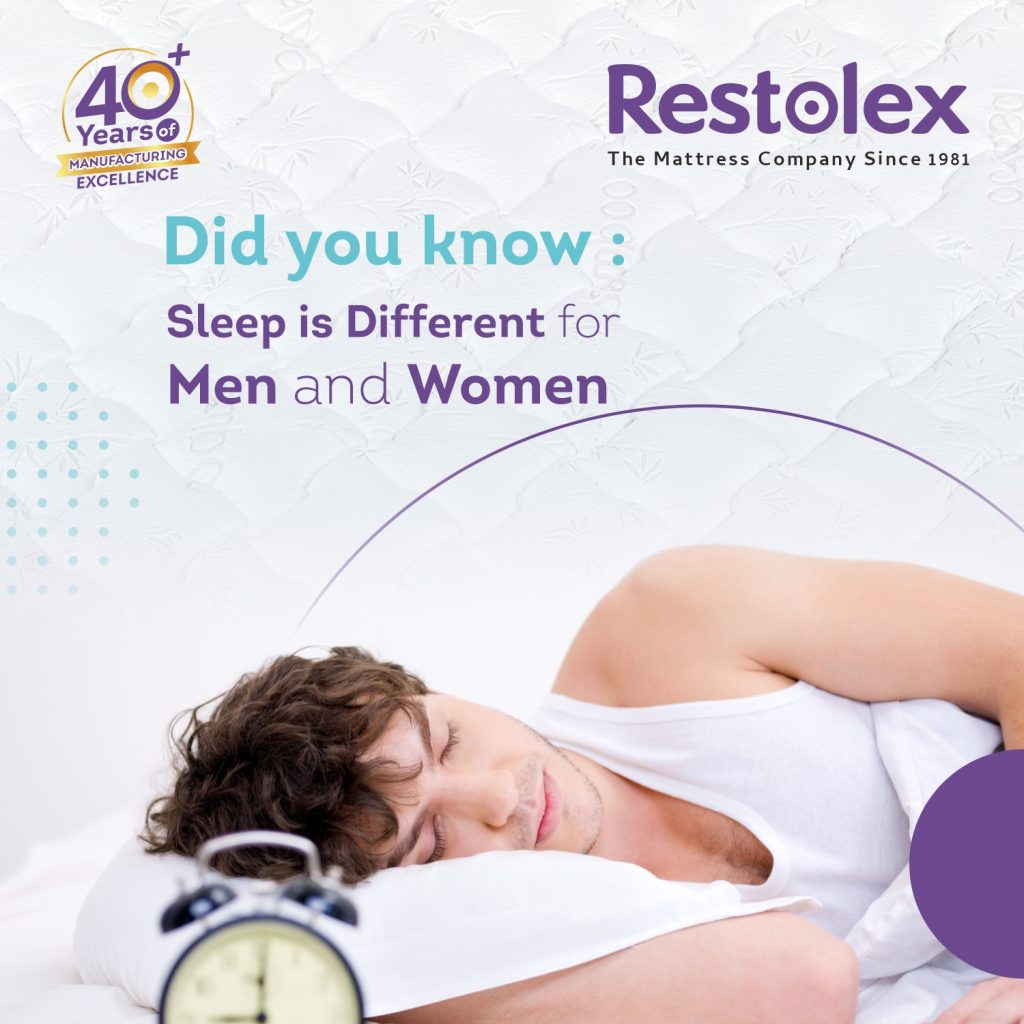Do Men Sleep Better?
The age-old question of whether men sleep better than women is a topic of both scientific research and casual debate. While it’s easy to assume that everyone’s sleep is the same, studies show there are some key differences in how men and women experience sleep. Let’s dive into the science behind sleep to see if men really have the upper hand—or if the reality is more nuanced.

1. Hormonal Differences Impact Sleep
One of the biggest factors affecting sleep patterns is hormones. Men and women have different hormonal cycles, and these fluctuations can influence the quality and duration of sleep. For instance:
- Men: Testosterone levels, which are highest in the morning and decrease throughout the day, can play a role in sleep patterns. Research suggests that men with higher testosterone levels tend to sleep better, especially when testosterone production peaks during deep sleep stages.
- Women: Hormonal changes across the menstrual cycle, pregnancy, and menopause can lead to sleep disturbances, insomnia, or fragmented sleep. The drop in estrogen and progesterone, particularly during menopause, can cause sleep disruptions and night sweats.
2. Do Men Fall Asleep Faster?
On average, men tend to fall asleep faster than women. Studies show that men usually drift off quicker once they hit the pillow. This may be due in part to the way men and women handle stress and the cognitive activity that occurs before bed. Women are more likely to experience “racing thoughts,” which can delay falling asleep, while men tend to compartmentalize stress more easily, aiding faster sleep onset.
3. Sleep Duration: Who Gets More?
Interestingly, men and women might sleep different amounts. According to studies:
- Men: On average, men sleep slightly less than women. Many men report getting around 6 to 7 hours of sleep on a regular basis.
- Women: Women often report needing and getting more sleep—typically between 7 to 9 hours per night. Women’s brains are known to multitask more throughout the day, which might explain the need for more recovery time at night.
4. Sleep Disorders: Who Is More Affected?
When it comes to sleep disorders, the differences between men and women become even more apparent:
- Men: Sleep apnea, a condition where breathing temporarily stops during sleep, is more prevalent in men. Men are also more likely to experience snoring and other respiratory-related sleep issues.
- Women: Women are more prone to insomnia and difficulty staying asleep, particularly due to hormonal changes. Women are also more likely to suffer from restless leg syndrome (RLS) and experience disturbed sleep during pregnancy.
5. Quality of Sleep: Is It Better for Men?
While men may fall asleep quicker and have fewer disruptions, women generally experience deeper and more restorative sleep during their sleep cycles. Women spend more time in the stages of deep sleep, which is crucial for physical recovery and mental well-being.
6. Impact of Stress on Sleep
Stress and anxiety can affect anyone’s sleep, but the way men and women react to stress can differ:
- Men: Tend to externalize stress, and although stress may affect them, it might not always disturb their sleep as severely.
- Women: Women tend to internalize stress, which can lead to overthinking at night. This can make it harder for them to fall asleep or stay asleep.
7. Sleep Environment and Preferences
Men and women also have different preferences when it comes to their sleep environment:
- Temperature: Men tend to prefer cooler sleep environments, while women may be more sensitive to temperature changes. This can affect sleep quality, especially in shared beds.
- Bedding: Preferences in firmness or softness of mattresses can also vary. Men may prefer firmer mattresses that support their body weight, while women often lean toward softer, more cushioned bedding for pressure relief.
Conclusion: Do Men Really Sleep Better?
The answer to whether men sleep better than women isn’t straightforward—it depends on what aspects of sleep we’re talking about. Men may fall asleep faster and have fewer hormonal disruptions, but women tend to experience deeper, more restorative sleep. Both men and women face unique challenges that impact their sleep, whether it’s hormonal changes, stress, or environmental preferences.
Ultimately, sleep quality comes down to individual factors. Investing in a quality mattress, like the ones offered by Restolex, can improve anyone’s sleep experience—whether you’re a man or a woman. Finding the right sleep environment, managing stress, and addressing any underlying health issues are essential for everyone to enjoy a good night’s rest.
If you’re struggling with sleep, regardless of gender, consider evaluating your sleep habits, mattress, and overall sleep environment to wake up feeling refreshed and energized.
Newsletter Sign Up
Join our community to receive exclusive updates, sleep tips, and special offers directly in your inbox. Stay informed and be the first to know about our latest products and promotions.

Contact Us
- 9/1, Ashokapuram, Industrial Suburb, Yeshwanthpur, Bengaluru-560022, India
-
care@restolex.com
Orders@restolex.com
Support@restolex.com -
+91-8750054466
+91-8123018558
